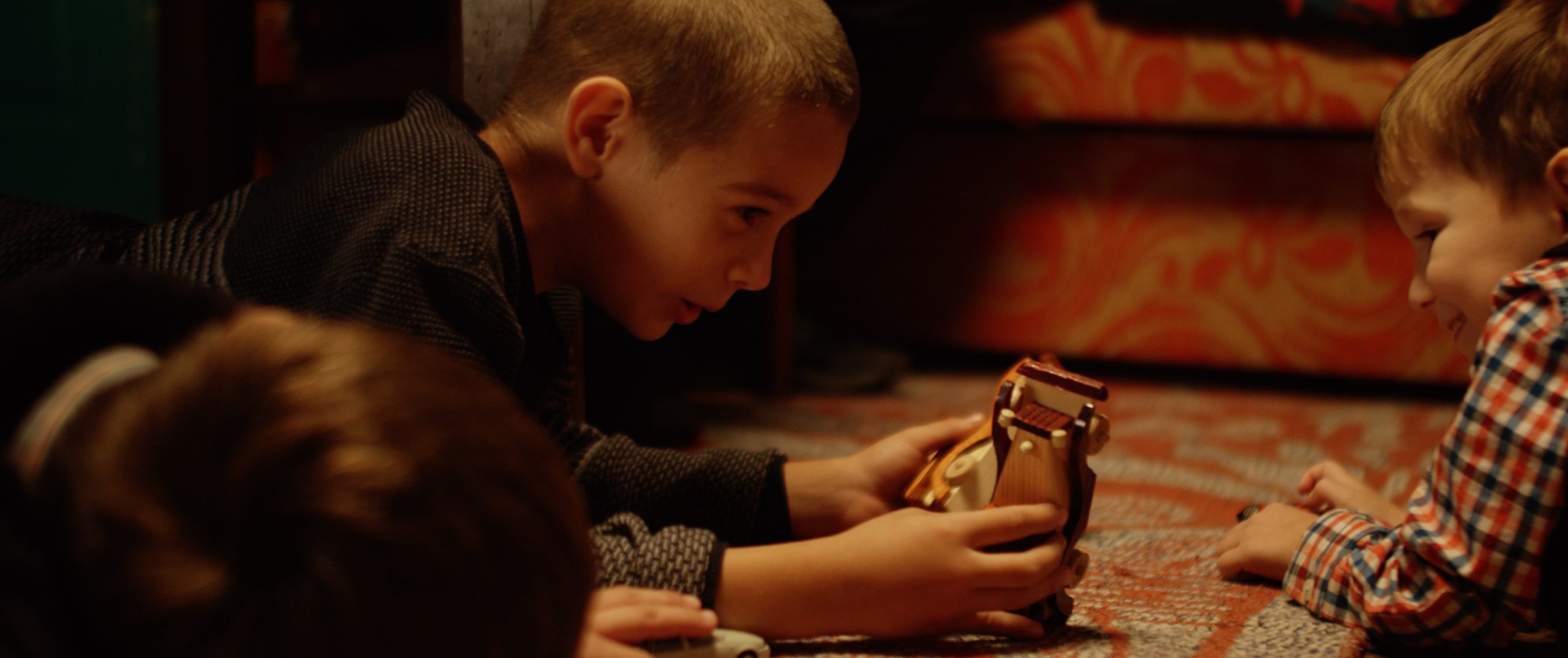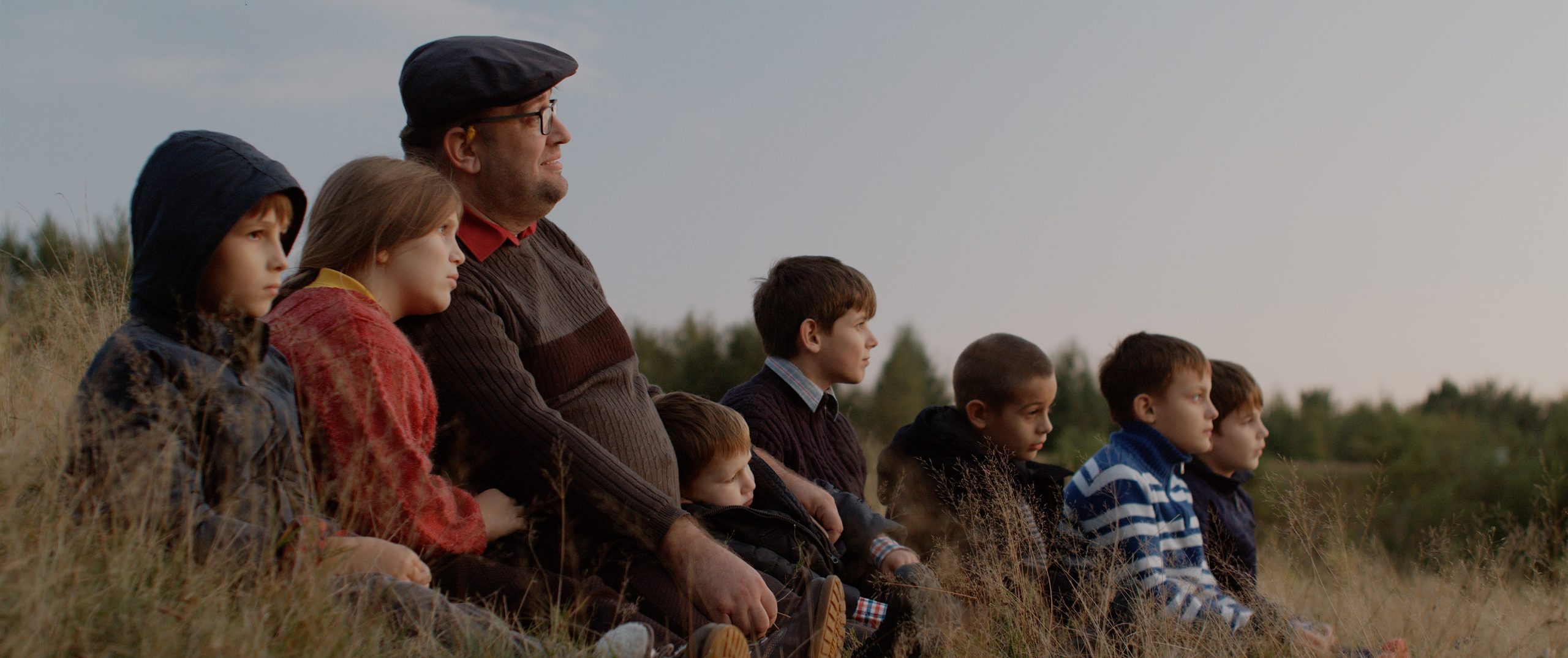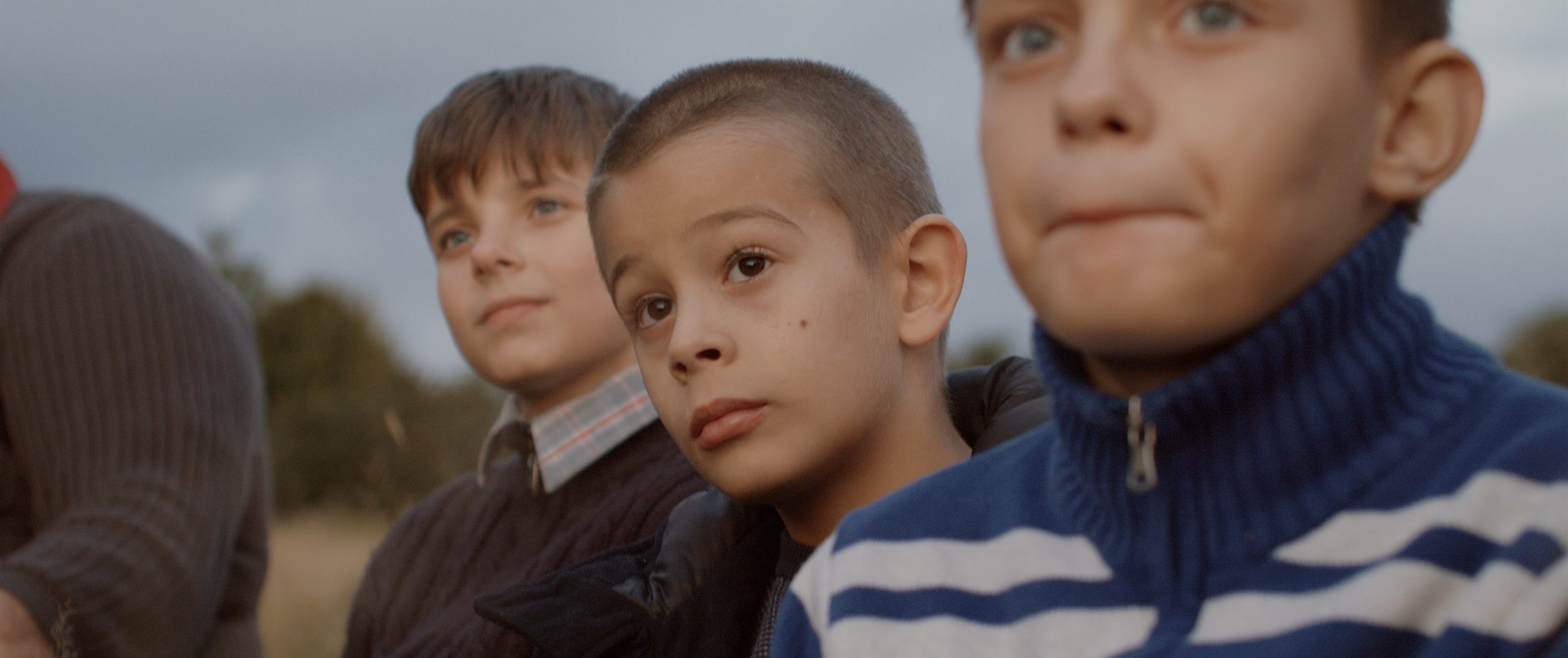Director: David Kabbe
Writer: Sarah Padbury
Stars: Iosua Barbu, Sarah Padbury, Lucian Igna
Synopsis: Disabled children are banished in 1988 communist Romania. But one daring nanny resolves to take 8-year-old Izidor outside for the very first time. She never could have imagined the consequences.
It is no secret that people with disabilities have been treated differently than those without. This has taken many forms in many cultures, and to varied extremes. Even something as simple as visibility and representation plays a large part in othering those with mobility issues. This is bad enough, but during some parts of history, the treatment was much worse. For example, in the mid-to-late 1980s in Romania, the communist regime essentially banished disabled children to orphanages. Talk about visibility, they were not allowed to be seen on the streets at all. This is a drastic decision, and one that seems deeply disturbed and barely real. But these histories must be faced, so we can learn from them across cultures.
David Kabbe’s Izidor tells the story of one of these children hidden away in Romania during this time. An opening scrawl tells us that in Romania, the law demanded that all couples have five children. If and when parents cannot provide for them, they are transferred to state-run institutions. But, if children have disabilities, they are housed in asylums. And more than that, they are not to be seen on the streets at all. This is where we meet the film’s titular character (Iosua Barbu), a young child housed in one of these asylums.
Visually, the film takes some chances stylistically. With the opening, the outside world is shown in lovely detail, giving a sense of beauty and freedom, with birds flying over lush, green trees. But, as the camera moves to the asylum, the oppression is palpable. And as the film transitions inside the building, the style changes from standard film to roughly performed animation. This decision is both odd and effective. Though most filmmakers use animation to detail freedom and vibrancy, Kabbe does the opposite to incredible effect. The animation is technically in color, but only just so. The quality gives us a sense of ugliness and a dour feeling that hangs over the scenes. Effectively, we wish for it to end or change, just like Izidor must in every possible moment.
And it does change, as a kindly nurse, Onisa (Sarah Padbury, also the screenwriter) at the asylum convinces the doctors to allow her to take Izidor for a day out. But, of course, she must be cautious as if he is seen on the streets, there will be trouble for everyone involved. Kabbe does a tremendous job of immediately making us feel this threat, just as the film begins to move back to live action film. This decision gives us a sense of reality that fools both us and the child into thinking that this is his new life. As the film is from his perspective, we are not allowed a lot of detail into what will happen later. Only this moment matters. And this moment is full of love, life, and happiness.
We are introduced to an entirely new world. A world with a kindly patriarch and adoring children. There is an extended scene with the father (Lucian Igna) telling the story of the “Bigmouth Frog” that is a perfect encapsulation of a cheesy Dad joke, but never loses its charm. The children laugh and Izidor joins in, for the first time being given both the feeling of home and a genuine family. This dinner scene, paired with Izidor’s discovery of fruit on the vine and fresh mushrooms creates a sense of wonder that feels almost like we can taste it with him.
Although some of the actors are clearly amateurs, this actually works for Izidor. The delivery of heavily accented English draws the audience in and helps us want to experience this and build the same trust that Izidor does. But Barbu, in his acting debut, gives a stunning performance. His move from frightened to trusting back to terrified must feel genuine. And he does not have much time (the entire film is less than a half hour) to accomplish this. But through small facial expressions and gestures, we see and feel it all. He provides first a meek personality, then a sense of awe at the world around him, and then near defeat when he is returned to the asylum after one perfect day.
These stories of abuse and maltreatment must be told, no matter how difficult they are to experience, even through the distance of film. Kabbe does honor to Izidor and the countless other children who were starved and hidden away from sight. Our disabled community deserves much better and this is a reminder of both how far we have come (so far) and what we must fight to avoid in the future.








